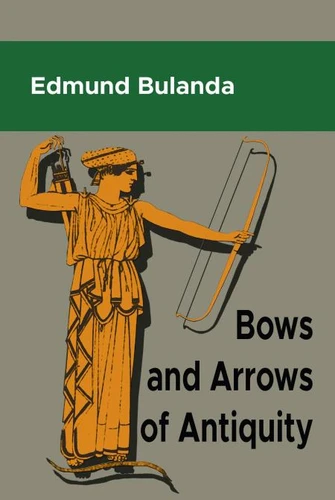Bows and Arrows of Antiquity
Par :Formats :
Disponible dans votre compte client Decitre ou Furet du Nord dès validation de votre commande. Le format ePub est :
- Compatible avec une lecture sur My Vivlio (smartphone, tablette, ordinateur)
- Compatible avec une lecture sur liseuses Vivlio
- Pour les liseuses autres que Vivlio, vous devez utiliser le logiciel Adobe Digital Edition. Non compatible avec la lecture sur les liseuses Kindle, Remarkable et Sony
 , qui est-ce ?
, qui est-ce ?Notre partenaire de plateforme de lecture numérique où vous retrouverez l'ensemble de vos ebooks gratuitement
Pour en savoir plus sur nos ebooks, consultez notre aide en ligne ici
- FormatePub
- ISBN8227596215
- EAN9798227596215
- Date de parution29/07/2024
- Protection num.pas de protection
- Infos supplémentairesepub
- ÉditeurBig Dog Books, LLC
Résumé
Explore the fascinating history of archery with "Bows and Arrows of Antiquity." This comprehensive book delves into the evolution of ancient weaponry, detailing traditional bows, intricate arrow designs, and the archery techniques used by various civilizations. Perfect for history enthusiasts, archaeologists, and archery aficionados, this book uncovers the craftsmanship behind bows and arrows and their significance in hunting and warfare throughout the ages.
Discover the rich legacy of primitive weapons with vivid illustrations and expert insights. Edmund Bulanda, Bows and Arrows of Antiquity, is a scientific work by a Polish archaeologist, published in German in 1913. In the book, the author discusses the basic types of bows used in ancient times. The following chapters describe: Egyptian bows, Ethiopian bows, Arab bows, Babylonian bows, Assyrian bows, Israelite, Hittite, Mede and Persian bows, Canaanite and Jewish bows, Scythian bows, Mycenaean and Cretan bows from the Bronze Age, and Greek bows.
In addition to ancient bows, the book contains descriptions of quivers and arrows.
Discover the rich legacy of primitive weapons with vivid illustrations and expert insights. Edmund Bulanda, Bows and Arrows of Antiquity, is a scientific work by a Polish archaeologist, published in German in 1913. In the book, the author discusses the basic types of bows used in ancient times. The following chapters describe: Egyptian bows, Ethiopian bows, Arab bows, Babylonian bows, Assyrian bows, Israelite, Hittite, Mede and Persian bows, Canaanite and Jewish bows, Scythian bows, Mycenaean and Cretan bows from the Bronze Age, and Greek bows.
In addition to ancient bows, the book contains descriptions of quivers and arrows.
Explore the fascinating history of archery with "Bows and Arrows of Antiquity." This comprehensive book delves into the evolution of ancient weaponry, detailing traditional bows, intricate arrow designs, and the archery techniques used by various civilizations. Perfect for history enthusiasts, archaeologists, and archery aficionados, this book uncovers the craftsmanship behind bows and arrows and their significance in hunting and warfare throughout the ages.
Discover the rich legacy of primitive weapons with vivid illustrations and expert insights. Edmund Bulanda, Bows and Arrows of Antiquity, is a scientific work by a Polish archaeologist, published in German in 1913. In the book, the author discusses the basic types of bows used in ancient times. The following chapters describe: Egyptian bows, Ethiopian bows, Arab bows, Babylonian bows, Assyrian bows, Israelite, Hittite, Mede and Persian bows, Canaanite and Jewish bows, Scythian bows, Mycenaean and Cretan bows from the Bronze Age, and Greek bows.
In addition to ancient bows, the book contains descriptions of quivers and arrows.
Discover the rich legacy of primitive weapons with vivid illustrations and expert insights. Edmund Bulanda, Bows and Arrows of Antiquity, is a scientific work by a Polish archaeologist, published in German in 1913. In the book, the author discusses the basic types of bows used in ancient times. The following chapters describe: Egyptian bows, Ethiopian bows, Arab bows, Babylonian bows, Assyrian bows, Israelite, Hittite, Mede and Persian bows, Canaanite and Jewish bows, Scythian bows, Mycenaean and Cretan bows from the Bronze Age, and Greek bows.
In addition to ancient bows, the book contains descriptions of quivers and arrows.



